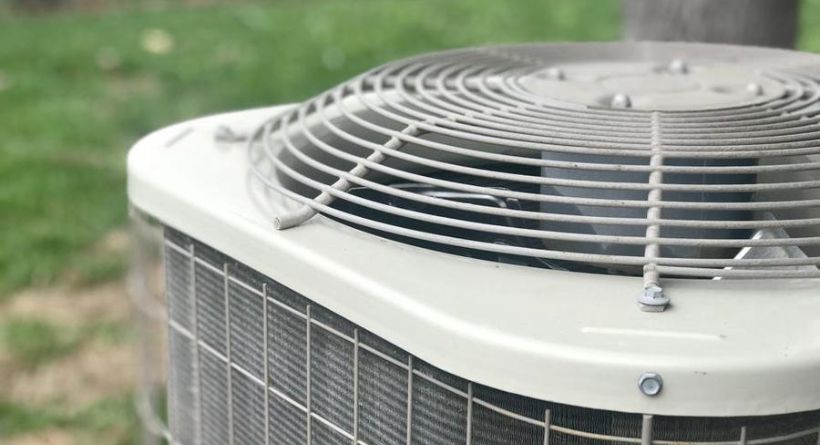Heating, Ventilation, and Air Conditioning (HVAC) systems are integral to modern living, ensuring comfort in residential, commercial, and industrial spaces.
But when these systems require maintenance, repairs, or new installations, HVAC contractors step in to handle the job.
In this guide, we’ll explore the following aspects of an HVAC contractor’s job, shedding light on their tasks, certifications, skills, and the importance of their work in various industries.
What is an HVAC Contractor?
An HVAC contractor is a licensed professional specializing in the installation, maintenance, and repair of heating, ventilation, and air conditioning systems.
They play a crucial role in ensuring these systems function efficiently and provide optimal air quality and temperature control in various settings.
Key Responsibilities
- System installation: Designing and setting up new HVAC systems.
- Maintenance: Regular check-ups and cleaning to ensure systems run smoothly.
- Repairs: Fixing malfunctioning components or parts.
- Upgrades: Recommending energy-efficient solutions and newer models.
Types of HVAC Contractors: Residential vs. Commercial
While HVAC contractors are adept at working in both residential and commercial settings, their tasks can vary significantly depending on the environment.
Residential HVAC Contractors
- Work on smaller, more contained systems, typically found in single-family homes, apartments, and small residential buildings.
- Focus on comfort systems like central air conditioners, furnaces, heat pumps, and ductwork.
Commercial HVAC Contractors
- Handle larger, more complex systems in office buildings, factories, hospitals, and industrial settings.
- Work with advanced technologies such as VRF (Variable Refrigerant Flow) systems and large-scale ductwork.
| Type of Contractor | Typical Clients | Types of HVAC Systems Managed |
|---|---|---|
| Residential HVAC Contractors | Homeowners, Apartments | Central A/C units, Furnaces, Heat pumps |
| Commercial HVAC Contractors | Offices, Factories, Hospitals | Large-scale cooling towers, VRF systems, Rooftop units (RTUs) |
ALSO READ: What Is The GOLO Diet?
Core Services of HVAC Contractors
Installation of HVAC Systems
Whether in new construction or upgrading outdated systems, HVAC contractors are responsible for properly installing heating and cooling equipment.
This requires measuring load requirements, selecting appropriate system sizes, and ensuring correct placement.
Routine Maintenance
HVAC systems are complex and require periodic maintenance to extend their lifespan. Routine services include cleaning filters, checking refrigerant levels, inspecting electrical connections, and testing thermostats to ensure optimal functionality.
Repairs and Troubleshooting
When a system malfunctions, HVAC contractors diagnose the issue and perform repairs. This can involve fixing faulty wiring, replacing broken parts, or addressing airflow issues caused by blocked ducts.
Energy-Efficient Upgrades
A significant part of an HVAC contractor’s job is recommending and installing energy-efficient solutions.
Upgrading to high-efficiency systems not only reduces environmental impact but also lowers energy bills for both homeowners and businesses.
Specialized Skills of HVAC Contractors
Electrical Work
HVAC systems are powered by electricity, making knowledge of electrical systems crucial. HVAC contractors must be familiar with wiring, breakers, and power supplies to safely and efficiently install or repair systems.
Refrigeration Knowledge
Since air conditioning relies on refrigeration cycles, HVAC contractors must understand how refrigerants work.
They must also stay up-to-date on new refrigerant regulations, such as the phase-out of ozone-depleting substances.
Air Quality Expertise
Modern HVAC contractors are often called upon to improve indoor air quality.
This might involve installing air purifiers, humidifiers, or ventilation systems that control pollutants, allergens, and moisture levels.
| Specialized Skill | Description |
|---|---|
| Electrical Knowledge | Understanding system wiring, power distribution, and troubleshooting electrical issues. |
| Refrigerant Handling | Expertise in refrigerant types and their safe management. |
| Air Quality Management | Enhancing indoor air quality with specialized equipment and filtration systems. |
Licensing and Certifications
HVAC contractors must undergo extensive training and obtain certifications before they can legally work.
Different states have specific licensing requirements, but the most recognized certifications include:
- NATE (North American Technician Excellence): A certification that validates a contractor’s knowledge in HVAC system installation and repair.
- EPA 608 Certification: Required for any HVAC professional who handles refrigerants, as per the Clean Air Act.
- State HVAC License: Varies by state but ensures that contractors meet regional requirements for safety and technical knowledge.
Tools and Technologies HVAC Contractors Use
Modern HVAC contractors rely on an array of specialized tools to ensure the systems they install and repair work efficiently. Here are some key tools:
- Multimeter: Used for checking electrical currents.
- Refrigerant Gauges: Help monitor and adjust refrigerant levels.
- Manifold Gauges: Used to measure the pressure of the HVAC system.
- Duct Blower Testers: Measure ductwork efficiency and detect air leaks.
| Tool | Purpose |
|---|---|
| Multimeter | Measure electrical current and troubleshoot electrical issues. |
| Refrigerant Gauges | Measure and adjust refrigerant pressure. |
| Duct Blower Testers | Check for air leaks in ductwork and assess efficiency. |
Common HVAC Issues Handled by Contractors
HVAC contractors are often called in to resolve common system problems that can arise due to improper maintenance, wear and tear, or faulty components. Some common issues include:
- Refrigerant Leaks: Leading to inefficient cooling or heating.
- Thermostat Malfunctions: Causing improper temperature control.
- Clogged Air Filters: Restricting airflow and reducing system efficiency.
- Broken Compressors: Causing the system to fail entirely.
Common HVAC Problems and Their Fixes
| Problem | Symptom | Solution |
|---|---|---|
| Refrigerant Leak | Inconsistent cooling or heating | Locate and fix the leak, recharge refrigerant |
| Thermostat Issue | Wrong temperature settings | Recalibrate or replace the thermostat |
| Clogged Filter | Reduced airflow | Clean or replace air filter |
| Compressor Failure | No cooling/heating | Replace the compressor |
Energy Efficiency and HVAC Systems
One of the most significant contributions HVAC contractors make today is improving the energy efficiency of buildings.
Modern HVAC systems are designed to use less energy, reducing both costs and environmental impact.
Smart Thermostats
Many HVAC contractors now install smart thermostats that automatically adjust heating and cooling settings based on occupancy or predefined schedules.
These devices help homeowners and businesses reduce energy waste and save on utility bills.
High-Efficiency HVAC Units
Contractors frequently recommend upgrading older systems to high-efficiency units that meet or exceed energy regulations.
These units offer better performance while using less energy and providing better temperature control.
SEER Rating
The Seasonal Energy Efficiency Ratio (SEER) measures the efficiency of air conditioners.
HVAC contractors often recommend units with a higher SEER rating, which ensures better energy savings and lower operational costs.
Questions to Ask Before Hiring an HVAC Contractor
To ensure you’re hiring the right HVAC contractor for your project, consider asking the following questions:
- Are you licensed and insured? (Verifies credibility and accountability)
- Can you provide references? (Gives you insight into their previous work)
- Do you offer a warranty? (Ensures post-installation support)
- What brands do you recommend? (Assures you’re getting quality products)
Key Questions to Ask Your HVAC Contractor
| Question | Why It’s Important |
|---|---|
| Are you licensed and insured? | Ensures legitimacy and protection in case of accidents. |
| Do you offer a warranty? | Guarantees future support for repairs and maintenance. |
| Can you provide references? | Helps gauge the contractor’s reliability and service quality. |
The Future of HVAC Technology
As technology evolves, so do the responsibilities of HVAC contractors. Future trends in HVAC include:
- Geothermal Heat Pumps: Using the Earth’s stable temperatures for energy-efficient heating and cooling.
- Ductless Mini-Split Systems: Offering more efficient and flexible climate control for individual rooms.
- IoT-Connected HVAC Systems: Enabling remote monitoring, predictive maintenance, and automatic adjustments to enhance performance and energy efficiency.
Advanced HVAC Technologies
The world of HVAC systems is evolving rapidly due to advancements in technology, which not only enhance efficiency but also improve user comfort and environmental sustainability.
Here’s a closer look at some of the most cutting-edge HVAC technologies being adopted today.
Geothermal Heat Pumps
Geothermal heat pumps (also known as ground-source heat pumps) are one of the most energy-efficient technologies available for heating and cooling.
Instead of using outside air to regulate indoor temperature, geothermal systems take advantage of the earth’s relatively constant underground temperature.
Here’s how it works:
- Heat Exchange Process: Pipes are buried underground, through which a fluid (usually water mixed with antifreeze) circulates. In winter, the fluid absorbs heat from the ground and carries it indoors. In summer, the process is reversed, and heat is extracted from the building and dissipated underground.
- Benefits: Reduced operational costs, long lifespan, lower environmental impact, and higher efficiency (up to 400% more efficient than conventional systems).
Ductless Mini-Split Systems
Ductless mini-split systems are becoming increasingly popular for both residential and commercial applications.
As the name suggests, these systems operate without ductwork, making them ideal for homes without existing air ducts or in older buildings where installing ducts could be costly or impractical.
Here’s why mini-splits are a game-changer:
- Individual Zoning: Each room or area has its own unit, allowing for precise temperature control. This also means that unoccupied rooms aren’t unnecessarily heated or cooled, reducing energy waste.
- High Efficiency: Since ductwork can lose a significant amount of energy, ductless systems are more efficient. Plus, they use inverter technology to adjust compressor speed, avoiding energy spikes from turning on and off frequently.
- Flexible Installation: These units are compact and can be mounted on walls or ceilings, making them adaptable to various building layouts.
Variable Refrigerant Flow (VRF) Systems
VRF systems are widely used in large commercial buildings, though they’re gaining traction in residential projects as well.
These systems allow for simultaneous heating and cooling across different zones of a building, which can be particularly useful in mixed-use spaces.
- How VRF Works: A single outdoor unit connects to multiple indoor units via refrigerant lines. Depending on the needs of different zones, refrigerant flow is adjusted to either heat or cool specific areas.
- Advantages: Energy efficiency, zoned control, and the ability to recover waste heat from one zone and use it in another.
Smart HVAC Systems
Smart HVAC systems integrate with Internet of Things (IoT) technology, allowing for advanced control and monitoring capabilities.
- Smart Thermostats: Devices like the Nest or Ecobee thermostat can learn user preferences and adjust temperature settings based on occupancy, time of day, and weather forecasts. These systems can be controlled remotely via smartphone apps, giving homeowners and business owners greater flexibility.
- Predictive Maintenance: IoT-connected HVAC systems can notify the user (or HVAC contractors) when maintenance is required. This reduces the risk of breakdowns and ensures optimal performance.
Solar-Powered HVAC Systems
While still in its early stages, solar-powered HVAC systems are gaining attention for their environmental benefits.
These systems use solar panels to power either part or all of the HVAC system, reducing dependency on traditional electricity sources.
- Hybrid Solar Systems: Many homes and businesses are now installing hybrid systems that use solar power during the day and switch to grid power at night or during cloudy conditions.
- Environmental Impact: Reduces carbon footprint and lowers electricity bills.
| Technology | Key Benefit | Best Suited For |
|---|---|---|
| Geothermal Heat Pumps | Highest energy efficiency, reduced long-term costs | Homes with yard space for underground piping |
| Ductless Mini-Split Systems | Zoning control, no ducts required | Homes without existing ductwork, historic buildings |
| Variable Refrigerant Flow (VRF) | Heating/cooling in different zones simultaneously | Large commercial buildings, office spaces |
| Smart HVAC Systems | Remote control, energy savings, predictive maintenance | Tech-savvy homeowners and businesses |
| Solar-Powered HVAC | Eco-friendly, reduced energy costs | Sunny regions with high electricity rates |
ALSO READ: Bankruptcy Lawyer: Do You Need One and What to Expect
Conclusion
With advancing technology, the role of HVAC contractors has expanded beyond basic heating and cooling.
They now handle everything from energy-efficient installations to maintaining sophisticated climate control systems.
Whether it’s upgrading to a geothermal heat pump, installing a smart thermostat, or ensuring your ducts are sealed properly, a professional contractor is essential to achieving optimal comfort and efficiency in your space.
FAQs About HVAC Contractors and Systems
Here are some of the most commonly asked questions about HVAC contractors and the systems they work with.
Q: What is the difference between an HVAC technician and an HVAC contractor?
A: An HVAC technician is typically the individual performing hands-on work, such as installation, repairs, and maintenance. An HVAC contractor, on the other hand, usually owns the business and oversees larger projects. Contractors often handle the business aspects, planning, and technical oversight, while employing technicians to complete the work.
Q: How often should I service my HVAC system?
A: It is recommended to service your HVAC system at least twice a year—once before summer for the cooling system and once before winter for the heating system. Regular maintenance ensures efficiency, prevents costly breakdowns, and prolongs the system’s lifespan.
Q: What are the signs that my HVAC system needs repair?
A: Some common signs that your HVAC system needs repair include:
- Strange noises such as banging or squealing.
- Inconsistent temperature or poor airflow.
- Higher-than-usual energy bills.
- Water leaks around the unit.
- Bad odors coming from vents.
Q: What is SEER, and why is it important?
A: SEER stands for Seasonal Energy Efficiency Ratio, and it measures the efficiency of an air conditioning system. The higher the SEER rating, the more energy-efficient the unit is, which can result in lower energy bills and reduced environmental impact. A SEER rating of 13 is the minimum standard in most areas, with more efficient models reaching SEER ratings of 20 or higher.
Q: What size HVAC system do I need for my home?
A: The size of the HVAC system depends on the square footage of your home, insulation levels, local climate, and the number of windows. Contractors use a process called Manual J Calculation to determine the correct size. Oversized systems can lead to inefficiency and increased costs, while undersized systems may struggle to maintain the desired temperature.
Q: How can I improve the energy efficiency of my HVAC system?
A: Here are several ways to improve HVAC efficiency:
- Regular Maintenance: Ensure filters are changed regularly and the system is cleaned.
- Install a Smart Thermostat: These devices automatically adjust the temperature based on occupancy and preferences.
- Seal Air Leaks: Make sure your home is well-insulated and that ducts are sealed to prevent air leaks.
- Upgrade to Energy-Efficient Models: Consider replacing older units with high-SEER rated models.
Q: How long does an HVAC system typically last?
A: The lifespan of an HVAC system varies by type:
- Furnaces: 15-20 years
- Air Conditioners: 10-15 years
- Heat Pumps: 10-15 years Regular maintenance can extend the life of your system, while neglect may lead to more frequent repairs or early replacement.
Q: Are there rebates or tax incentives for upgrading my HVAC system?
A: Many local governments and utility companies offer rebates and incentives for upgrading to energy-efficient HVAC systems. Additionally, under certain federal programs, you may qualify for tax credits when installing systems with high-efficiency ratings. Check with your local HVAC contractor for details on current programs.
Q: Can I install an HVAC system myself?
A: While there are DIY kits available for certain HVAC tasks, such as window air conditioners, installing a full HVAC system is a complex job that requires professional knowledge and experience. Improper installation can lead to reduced efficiency, frequent breakdowns, and even safety risks. It’s always best to hire a licensed HVAC contractor for full installations.
Q: What is a heat pump, and how is it different from an air conditioner?
A: A heat pump is a versatile system that can both heat and cool a home. It works by transferring heat rather than generating it. In cooling mode, it extracts heat from indoors and releases it outside, just like an air conditioner. In heating mode, it reverses this process, extracting heat from the outside air (or ground, in the case of geothermal heat pumps) and bringing it indoors.







